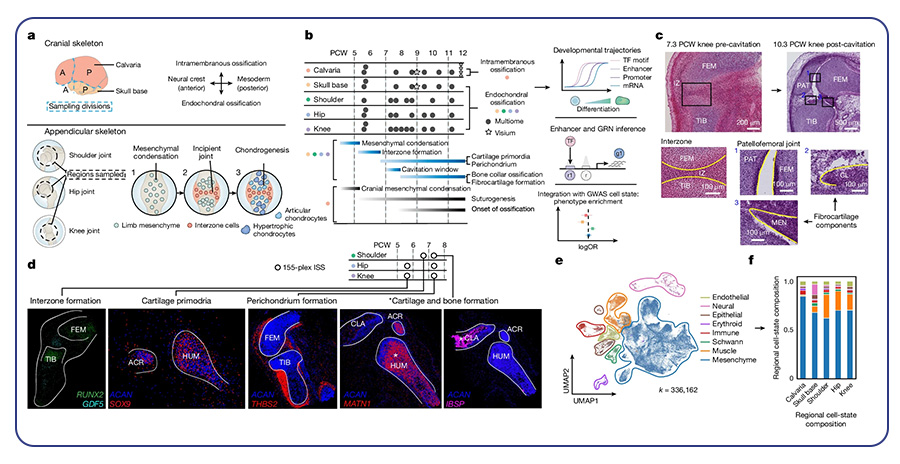By Courtney Nirenberchik, Marketing Manager, MedGenome Inc
The Human Cell Atlas (HCA) consortium has unveiled a landmark collection of over 40 studies from more than 100 countries, marking a significant leap in our understanding of the human body. Published across Nature and its affiliated journals, this updated release represents years of collaborative effort, utilizing cutting-edge single-cell and spatial transcriptomics technologies to map the cellular composition of tissues in unprecedented detail. These findings pave the way for breakthroughs in regenerative medicine, diagnostics, and the treatment of complex diseases.
Key insights from the HCA studies
The studies span diverse biological systems and disease contexts, shedding light on human development, immune responses, and tissue-specific functions. Highlights include:
- Developmental Biology: An atlas of the skeletal system’s formation during embryonic development offers insights into bone growth and disorders.
- Gut Health: A detailed map of the gastrointestinal system identified novel cell types implicated in inflammatory diseases like Crohn’s disease, providing potential targets for therapeutic intervention.
- Immune System Insights: Comprehensive profiling of immune cells across tissues reveals new aspects of their function in maintaining health and responding to disease.
These studies not only enrich our understanding of human biology but also lay the groundwork for precision medicine by providing detailed references for healthy tissues.

Advancing research with the Human Cell Atlas
The HCA’s datasets are already transforming research by serving as a gold-standard reference for single-cell and spatial transcriptomics studies. Researchers can now compare their findings against these comprehensive atlases to identify deviations associated with diseases. Moreover, the tools and methodologies developed as part of the HCA initiative are accelerating discoveries across biomedical research.
Dr. Marco Corbo, PhD, MedGenome’s Senior Scientist and Director of Bioinformatics, notes:
“The latest release from the Human Cell Atlas provides an invaluable reference for understanding the cellular basis of health and disease. By incorporating these datasets into our analyses, we can offer our clients more precise cell type annotations and deeper insights into tissue microenvironments, ultimately accelerating their research and discovery efforts.”
Empowering MedGenome’s clients with upgraded offerings
At MedGenome, we are committed to staying at the forefront of genomic research, and the latest Human Cell Atlas release directly enriches the services we provide to our clients. By integrating these groundbreaking datasets into our single-cell and spatial analysis offerings, we can deliver:
- Enhanced Cell Type Annotation: Leveraging the HCA’s robust references, we provide highly precise annotations, ensuring our clients receive the most accurate insights from their data.
- Improved Insights into Tissue Microenvironments: With access to this comprehensive data, our spatial transcriptomics services offer deeper understanding of cell-cell interactions and tissue-level dynamics.
- Upgraded Tools and Reports: We are refining our bioinformatics pipelines and data visualization tools to reflect the latest methodologies and standards established by the HCA.
- Future-Ready Research: As the HCA grows, we are poised to integrate new datasets and insights, ensuring that our clients’ research benefits from the most up-to-date scientific knowledge.
These advancements underscore our commitment to delivering services that empower researchers to push the boundaries of discovery in oncology, immunology, rare diseases, and more. The Human Cell Atlas is not just a scientific milestone—it is a resource that drives real-world applications and fuels innovation for our clients.
Curious about the analyses we offer as part of the MedGenome comprehensive solutions for understanding biology? Check out our blog posts on both single-cell and spatial analysis and explore our limited-time offer for discounted single-cell and spatial transcriptomics projects.
#Human Cell Atlas, #Developmental Biology, #spatial transcriptomics, #single-cell, #spatial analysis
 US
US IN
IN

